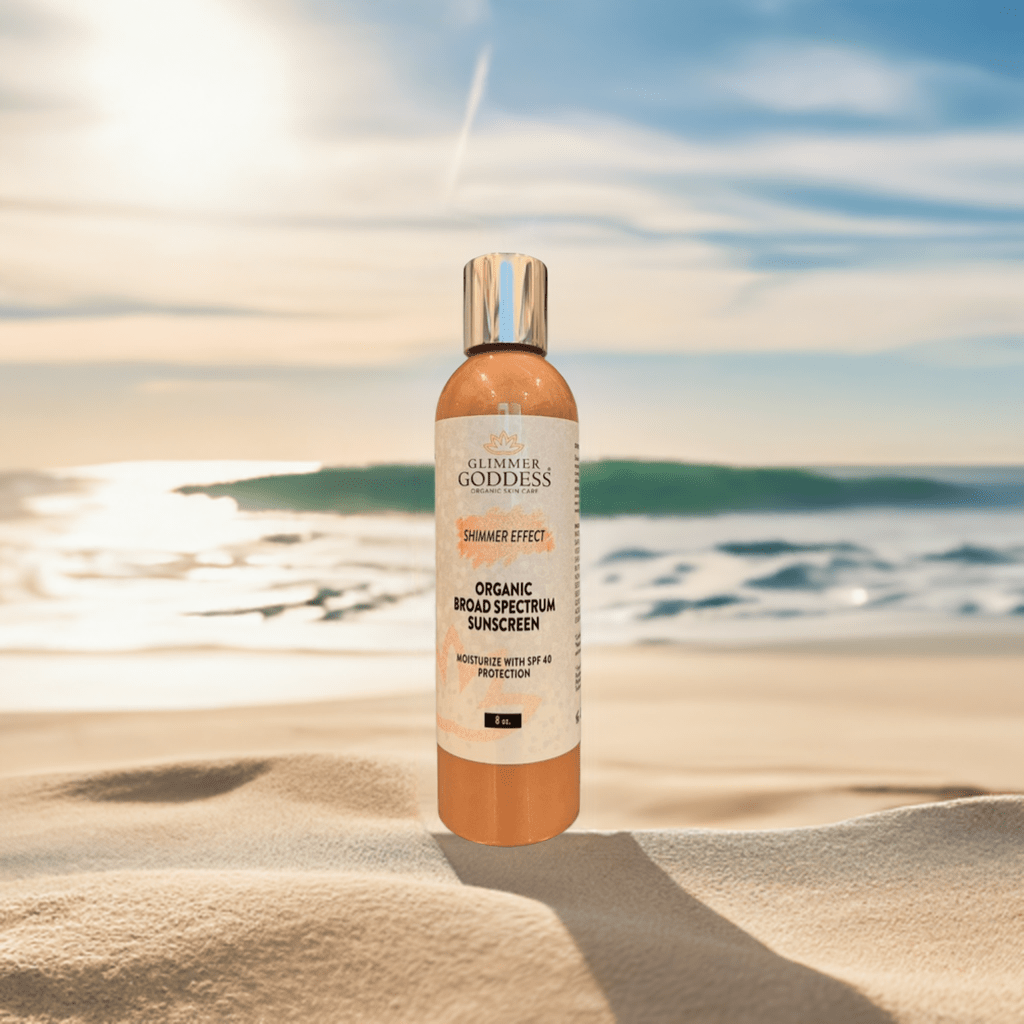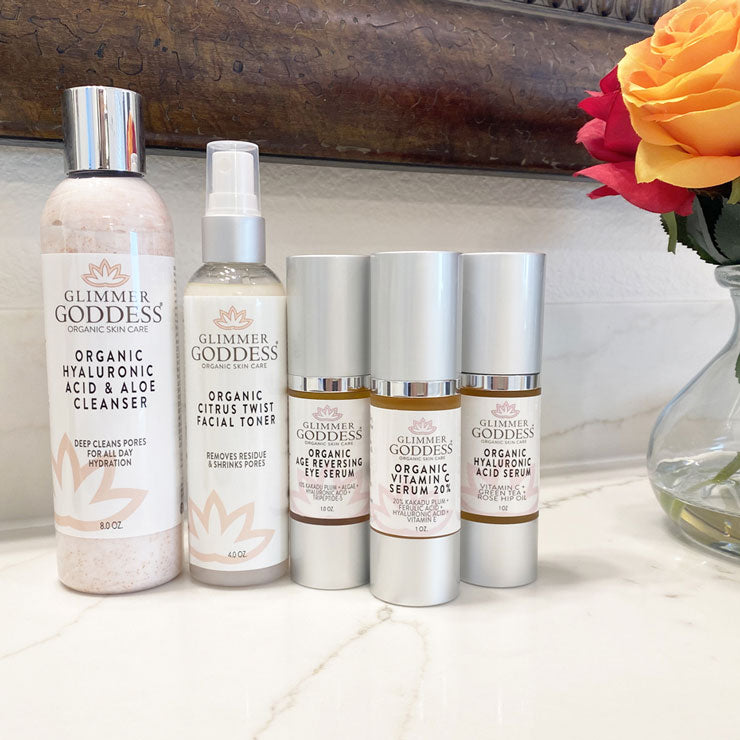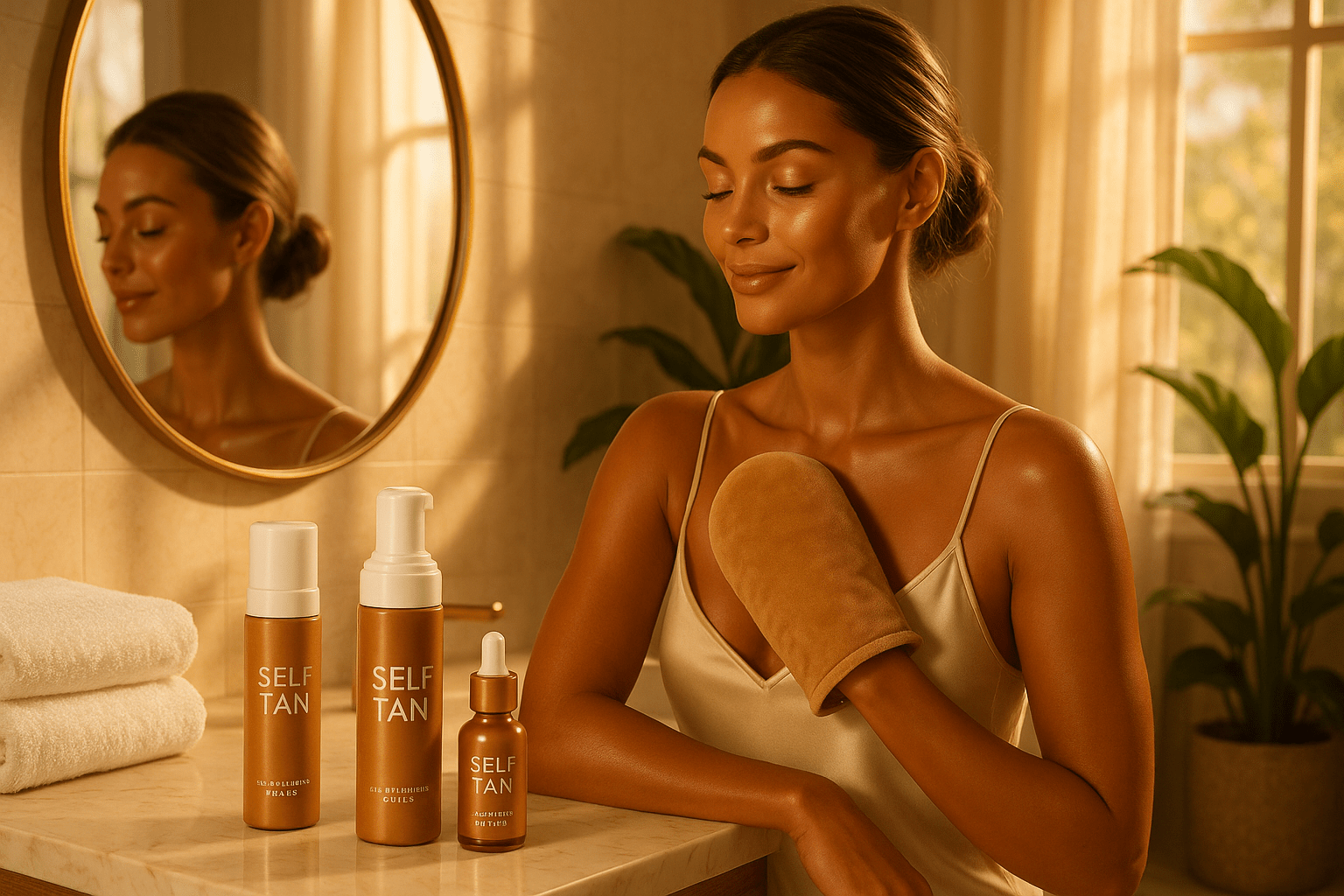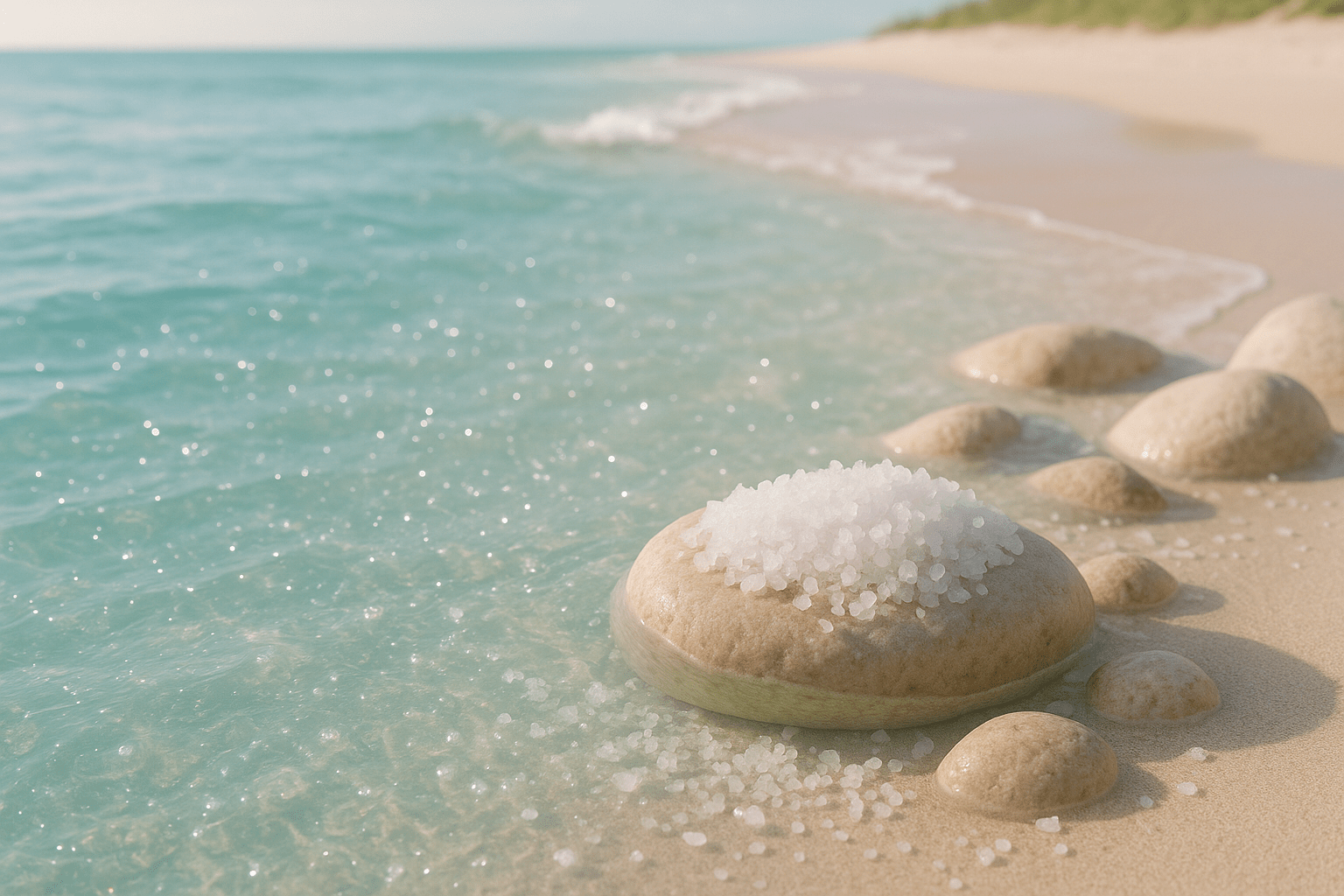
Daily Sunscreen Guide: Anti-Aging, Skin Cancer Prevention & Sun Protection Tips
Why Daily Sunscreen is Essential for Youthful, Healthy Skin
The necessity of daily sunscreen is often debated, but its vital role in protecting skin from UV damage is undeniable. From preventing skin aging to reducing cancer risk, understanding the importance of sunscreen can empower individuals to make informed skincare choices. Let's explore the compelling reasons why everyone, regardless of skin type, should incorporate sunscreen into their daily routine.
The Sunscreen Solution: Unlocking the Secrets to Youthful Skin
How Sunscreen Shields Your Skin from UV Damage
Sunscreen has long been touted as a vital tool in the fight against premature skin aging. But just how effective is it at preventing the visible signs of time? Unraveling the complex relationship between sunscreen and skin aging is key to understanding its true power.
Sunscreen: Your Skin's Invisible Shield
- Ultraviolet (UV) radiation from the sun is a primary driver of skin aging, responsible for the formation of fine lines, wrinkles, and age spots.
- Sunscreen acts as a physical and chemical barrier, absorbing or reflecting harmful UV rays before they can penetrate the skin and cause damage.
- By shielding the skin from UV exposure, sunscreen helps slow down the breakdown of collagen and elastin, the proteins that keep skin supple and youthful.
The Sunscreen-Aging Connection: What the Research Says
- Multiple studies have shown that regular sunscreen use can significantly reduce the development of wrinkles, age spots, and other signs of aging.
- One landmark study found that participants who used sunscreen daily showed 24% less skin aging over a 4.5-year period compared to those who used it less frequently.
- Consistent sunscreen application has also been linked to a reduction in the appearance of existing wrinkles and a more even skin tone.
Unlocking the Power of Sun Protection
- To maximize the anti-aging benefits of sunscreen, it's crucial to apply it liberally and reapply it frequently, especially during extended outdoor activities.
- Choosing a broad-spectrum sunscreen with an SPF of 30 or higher is recommended, as it provides protection against both UVA and UVB rays.
- Incorporating sunscreen into your daily skincare routine, even on cloudy days, is the key to maintaining youthful, radiant skin for years to come.
How Does Sunscreen Protect Against UV Rays?
Sunscreen is a powerful tool in the fight against skin damage, but how exactly does it work to shield your skin from the sun's harmful rays? Understanding the science behind sunscreen's protective capabilities can help you make informed choices and get the most out of your sun protection routine.
The Science of Sunscreen: Absorbing and Reflecting UV Rays
- Sunscreens contain both physical and chemical filters that work together to absorb, scatter, and reflect UV radiation.
- Physical filters, such as zinc oxide and titanium dioxide, sit on the skin's surface and act as tiny mirrors, deflecting UV rays away from the skin.
- Chemical filters, like oxybenzone and avobenzone, absorb UV radiation and convert it into heat, which is then released from the skin.
UVA vs. UVB: Sunscreen's Dual Protection
- Sunscreens are formulated to protect against both UVA and UVB rays, which have different wavelengths and can cause different types of skin damage.
- UVB rays, the shorter wavelength, are primarily responsible for sunburns and play a key role in the development of skin cancer.
- UVA rays, the longer wavelength, can penetrate deeper into the skin and contribute to premature aging, wrinkles, and age spots.
- Broad-spectrum sunscreens are designed to shield the skin from both UVA and UVB, providing comprehensive protection.
Sunscreen Efficacy: Understanding SPF and PA Ratings
- SPF, or Sun Protection Factor, measures a sunscreen's ability to protect against UVB rays. The higher the SPF, the greater the protection.
- PA, or Protection Grade of UVA, rates a sunscreen's effectiveness against UVA rays. The more "+" symbols, the stronger the UVA protection.
- To ensure complete sun protection, choose a sunscreen with an SPF of 30 or higher and a PA rating of at least +++.
Maximizing Sunscreen Effectiveness
- Proper application is key to getting the full protective benefits of sunscreen. Apply liberally and reapply every 2 hours, or more often if swimming or sweating.
- Pair sunscreen with other sun-smart habits, such as wearing protective clothing, seeking shade, and avoiding peak UV hours.
- Consistent use of a high-quality, broad-spectrum sunscreen is the best way to safeguard your skin from the damaging effects of the sun.
Does Daily Sunscreen Use Reduce Skin Cancer Risk?
Skin cancer is a growing global health concern, with rates rising steadily in many parts of the world. As the primary line of defense against the sun's harmful UV rays, sunscreen has long been touted as a crucial tool in the fight against this deadly disease. But just how effective is regular sunscreen use in reducing the risk of skin cancer?
The Link Between UV Exposure and Skin Cancer
- Overexposure to UV radiation, whether from the sun or indoor tanning, is the leading cause of skin cancer, including the most deadly form, melanoma.
- UV rays can damage DNA in skin cells, leading to the uncontrolled growth and proliferation of abnormal cells that can ultimately develop into cancerous tumors.
- Reducing overall UV exposure through sun-safe habits, such as the consistent use of sunscreen, is a proven strategy for lowering skin cancer risk.
Sunscreen and Skin Cancer Prevention: The Evidence
- Multiple large-scale studies have demonstrated the significant protective effects of sunscreen against the development of skin cancer.
- One landmark study found that daily sunscreen use reduced the incidence of melanoma, the deadliest form of skin cancer, by 50% over a 10-year period.
- Another study showed that regular sunscreen use can lower the risk of squamous cell carcinoma, the second most common type of skin cancer, by up to 40%.
- Consistent sunscreen application has also been linked to a reduced risk of actinic keratosis, precancerous skin lesions that can progress to squamous cell carcinoma if left untreated.
Optimizing Sunscreen for Skin Cancer Protection
- To maximize the cancer-preventive benefits of sunscreen, it's crucial to choose a broad-spectrum formula with an SPF of 30 or higher and apply it liberally and frequently.
- Reapplying sunscreen every 2 hours, or more often if swimming or sweating, helps maintain a continuous protective barrier against UV exposure.
- Incorporating sunscreen into a comprehensive sun-safe routine, which includes seeking shade, wearing protective clothing, and avoiding peak UV hours, can further reduce the risk of skin cancer.
The Bigger Picture: Sunscreen and Overall Health
Regular sunscreen use not only protects against skin cancer but also helps prevent premature skin aging, sunburns, and other UV-related skin damage. By making sunscreen a daily habit, you can safeguard your skin's health and well-being for years to come.
Unraveling the Sunscreen Spectrum: Navigating the World of Skin Protection
What Are the Different Types of Sunscreens?
When it comes to safeguarding our skin from the sun's harmful rays, sunscreen is an essential weapon in our arsenal. But with a myriad of options available, navigating the sunscreen landscape can be a daunting task. Let's delve into the different types of sunscreens and explore their unique features.
The Sunscreen Spectrum: Mineral, Chemical, and Hybrid
- Mineral sunscreens, also known as physical sunscreens, utilize natural mineral ingredients like zinc oxide and titanium dioxide to create a physical barrier that reflects and scatters UV rays.
- Chemical sunscreens, on the other hand, contain synthetic active ingredients like avobenzone, oxybenzone, and octinoxate that absorb UV radiation and convert it into heat, which is then released from the skin.
- Hybrid sunscreens, as the name suggests, combine both mineral and chemical active ingredients to provide a comprehensive defense against the sun's rays.
Should You Choose Mineral or Chemical Sunscreen?
When it comes to selecting the right sunscreen, the choice between mineral and chemical often sparks a debate. Each type has its own advantages and considerations, and understanding the differences can help you make an informed decision.
Mineral Sunscreens: Gentle and Effective
- Mineral sunscreens are generally considered gentler on the skin, making them a great option for those with sensitive skin or conditions like rosacea or eczema.
- They provide immediate protection upon application and are less likely to cause irritation or allergic reactions.
- Mineral sunscreens are also considered more environmentally friendly, as they do not contain the same potentially harmful chemicals found in some chemical sunscreens.
Chemical Sunscreens: Lightweight and Invisible
- Chemical sunscreens are typically more lightweight and absorb quickly into the skin, leaving behind a less visible or chalky finish compared to mineral sunscreens.
- They are often preferred for their cosmetic elegance, as they can be easier to blend and provide a more seamless application.
- Chemical sunscreens are generally more versatile, with a wider range of formulations and SPF options available.
The Hybrid Approach: Balancing Benefits
- Hybrid sunscreens combine the strengths of both mineral and chemical active ingredients, offering a versatile solution that can cater to various skin types and preferences.
- They provide broad-spectrum protection while often delivering a more cosmetically elegant application than traditional mineral sunscreens.
- Hybrid sunscreens can be a great compromise for those who want the benefits of both mineral and chemical sunscreens.
How to Pick the Right SPF for Your Skin Type?
Selecting the appropriate SPF (Sun Protection Factor) is crucial for ensuring effective sun protection. Your skin type, skin tone, and intended sun exposure should all be considered when choosing the right SPF.
Skin Type: A Key Consideration
- For those with fair or sensitive skin, a higher SPF (30 or above) is recommended to provide more robust protection against sunburn and long-term skin damage.
- Individuals with medium to dark skin tones may be able to opt for a slightly lower SPF (30-50), as their natural melanin provides some inherent sun protection.
- Individuals with oily or acne-prone skin may benefit from oil-free, non-comedogenic sunscreen formulations to avoid clogged pores and breakouts.
Sun Exposure: Tailor Your SPF
- For everyday, incidental sun exposure, an SPF of 30 or higher is generally sufficient.
- However, for extended outdoor activities or prolonged sun exposure, a higher SPF (50+) is recommended to ensure maximum protection.
- It's important to reapply sunscreen every 2 hours, or more frequently if swimming or sweating, to maintain the desired level of protection.
Striking the Balance: Finding Your Perfect SPF
- Ultimately, the ideal SPF for your skin type and sun exposure needs is a matter of personal preference and careful consideration.
- Experiment with different SPF levels and formulations to find the one that provides the right balance of protection, comfort, and skin-friendly benefits.
Navigating the sunscreen landscape can be a complex endeavor, but by understanding the different types of sunscreens and how to choose the right SPF for your skin, you can unlock the key to effective and comfortable sun protection. Remember, safeguarding your skin is not just about vanity - it's a crucial investment in your long-term health and well-being.
The Ultimate Guide to Applying Sunscreen Effectively
What Steps Should You Follow for Proper Application?
Applying sunscreen correctly is crucial for ensuring optimal protection against the sun's harmful UV rays. Here are the key steps to follow for proper sunscreen application:
Proper Sunscreen Application in 5 Easy Steps
- Start with a clean, dry face and body. Ensure your skin is free of any other skincare products or makeup.
- Apply a generous amount of sunscreen. Experts recommend using about 1 ounce (2 tablespoons) of sunscreen to cover your entire body.
- Spread the sunscreen evenly over all exposed areas, including your face, neck, ears, and any other areas that will be in the sun.
- Don't forget often-missed spots like the lips, around the eyes, and the tops of your feet.
- Reapply sunscreen every 2 hours, or more frequently if you're swimming or sweating.
Can Sunscreen Be Layered with Other Skincare Products?
Sunscreen can and should be layered with other skincare products for optimal protection and skin health. Here's what you need to know about layering sunscreen:
Layering Sunscreen with Other Products
- Sunscreen should be the last step in your skincare routine, applied after any serums, moisturizers, or other products.
- You can layer chemical and mineral sunscreens, but be sure to allow each layer to fully absorb before applying the next.
- Sunscreen can be layered with makeup, but make sure to apply a sufficient amount of sunscreen first, then follow with your makeup.
- Reapplying sunscreen throughout the day may require removing or blotting any existing makeup.
- Be cautious of layering too many products, as this can interfere with the efficacy of the sunscreen.
What Time of Day Is Best for Application?
When it comes to applying sunscreen, timing is crucial. Here's the best time of day to apply sunscreen for maximum protection:
The Optimal Time to Apply Sunscreen
- Sunscreen should be applied in the morning, before going outdoors.
- Apply sunscreen 15-30 minutes before sun exposure to allow the formulation to fully absorb and provide protection.
- Reapply sunscreen every 2 hours, or more frequently if you're sweating or swimming.
- Reapply sunscreen even on cloudy days, as UV rays can still penetrate through clouds.
- Be diligent about reapplying sunscreen throughout the day, as the initial application can wear off over time.
Incorporating proper sunscreen application into your daily routine is a crucial step in maintaining healthy, youthful skin. By following these guidelines and applying sunscreen consistently, you can effectively protect your skin from the damaging effects of the sun's UV rays and enjoy the great outdoors with peace of mind.
Radiant Skin Awaits: Discover Our Luxurious Skincare and Sun Care Collection
Goddess Glow Shimmer Suntan Lotion SPF 40 – Reef-Safe Radiance
Experience radiant protection with our shimmer suntan lotion. Infused with natural ingredients, this lotion offers SPF 40 protection while imparting a luminous glow to your skin. Designed for all skin types, our shimmer suntan lotion is lightweight, non-greasy, and reef-safe, ensuring both your skin and the environment are cared for.
Elevate your sun care routine with our shimmer suntan lotion. 🌟 Infused with natural ingredients, this lotion offers SPF 40 protection while imparting a luminous glow to your skin.
- SPF 40 Broad-Spectrum Protection: Shields against UVA and UVB rays.
- Natural Shimmer Effect: Enhances your skin's natural radiance.
- Reef-Safe Formula: Free from oxybenzone and octinoxate.
- Hydrating Ingredients: Moisturizes and nourishes the skin.
- Suitable for All Skin Types: Gentle and effective for everyone.
- Shimmering Glow: Illuminate like a sun goddess with shimmering mica minerals.
- Easy Application: Effortlessly apply and quickly dry this sunscreen with glitter for instant radiance.
- Water Resistant: Enjoy 40 minutes of water resistance while maintaining silky-smooth, hydrated skin.
Organic Illuminating Fruit Stem Cell Glow CC Cream Reef-Safe SPF 45
Experience the ultimate in skincare with our Organic Illuminating Fruit Stem Cell Glow Cream. This advanced formula harnesses the power of nature's finest ingredients to deliver a radiant complexion while providing superior protection.
Unlock your skin's potential with this transformative skincare essential. Revel in the benefits of plant stem cells, advanced peptides, and brightening pearls for a glowing, illuminated complexion with the reassurance of reef-safe SPF 45 protection.
- Powerful Fruit Stem Cells: Ligonberry, orchid, and orange fruit stem cells work together to reduce wrinkles, spots, firmness loss, dehydration, and roughness.
- Hydrating and Conditioning: Rosemary leaf extract and algae extract deeply hydrate and condition your skin for a smoother, softer feel.
- Advanced Hydration: Matrixl 3000, Argirelene, and Tripeptide-5 instantly boost hydration levels, minimizing fine lines and wrinkles.
- Brightening Effect: Ultrafine brightening pearls diffuse light to enhance luminosity, while glimmering mica minerals impart a universally flattering glow.
- High SPF Protection: Enjoy Reef-Safe SPF 45 protection against harmful UV rays, ensuring your skin stays shielded from sun damage.
Organic Reef-Safe Sunscreen - Broad Spectrum SPF 40
Introducing our Glimmer Goddess Organic Reef-Safe Sunscreen, a superior choice for your skin and the environment.
Experience long-lasting hydration and superior sun defense. Choose nature's way to protect and nourish your skin with confidence, knowing it's good for you and the coral reefs.
- Crafted with Certified Organic Ingredients for a gentle yet effective shield against UVA/UVB rays.
- Features un-coated non-nano Zinc Oxide, along with natural plant oils like red raspberry seed oil and pomegranate seed oil.
- Provides maximum sun protection while deeply moisturizing your skin.
- Lightweight and quick-drying formula absorbs rapidly without leaving a greasy residue.
- Waterproof and sweat-resistant for at least 40 minutes, perfect for active lifestyles.
Q&A
Can sunscreen prevent skin aging?
Yes, regular sunscreen use significantly reduces visible signs of skin aging, such as wrinkles and age spots, by protecting the skin from harmful UV rays.
How often should sunscreen be reapplied?
Sunscreen should be reapplied every 2 hours, or more frequently if swimming or sweating, to maintain effective protection against UV rays.
What is the difference between physical and chemical sunscreen?
Physical sunscreens use mineral ingredients that reflect UV rays, while chemical sunscreens absorb UV radiation and convert it into heat.
Does sunscreen help reduce skin cancer risk?
Yes, studies show that regular sunscreen use significantly lowers the risk of developing skin cancers, including melanoma and squamous cell carcinoma.
What SPF should I choose for my skin type?
Individuals with fair or sensitive skin should opt for SPF 30 or higher, while those with medium to dark skin can use SPF 30-50, depending on their sun exposure.
Incorporating sunscreen into your daily regimen is not just a beauty habit but a necessary step in protecting your skin’s health and longevity. With proven benefits such as reducing signs of aging and lowering skin cancer risk, choosing the right sunscreen for your skin type is imperative. Make sunscreen a routine part of your day to safeguard your skin and enhance your overall well-being.











